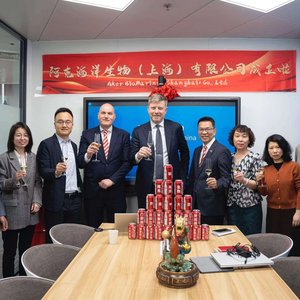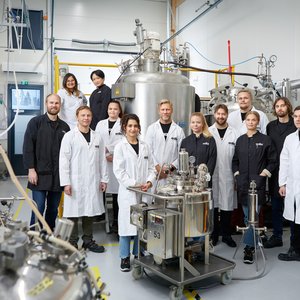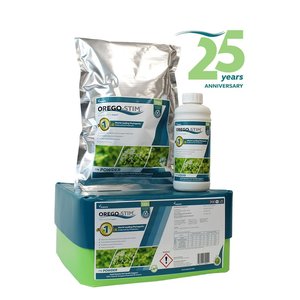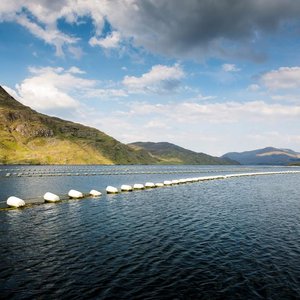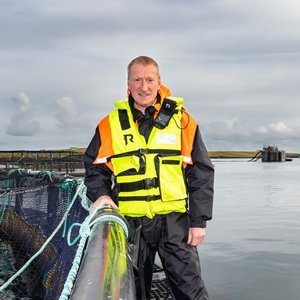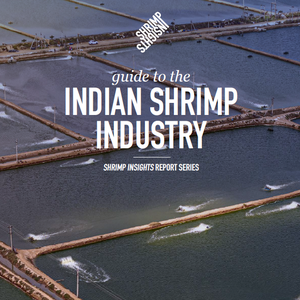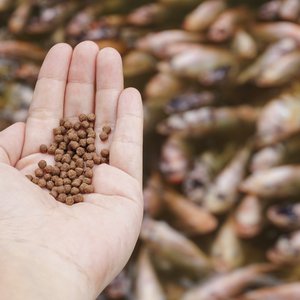Evonik scientists’ long-term intention is to turn salmon, shrimp, and other marine animals into vegetarians. To that end, they are looking to replace the fishmeal and fish oil produced from wild-caught fish that is used in feeds.
“Thanks to modern fish farming concepts and our amino-acid products, it is already possible to achieve significant reductions in the proportion of fishmeal used in feeds. Now we’re working on sustainable alternatives to fish oil,” explains Christoph Kobler, who heads the Sustainable Healthy Nutrition Product Line at Evonik.
In order to turn salmon, shrimp, and other aquatic species into vegetarians, and protect the oceans in the process, it is not enough to substitute fishmeal with soy or another plant-based source. The resulting feeds would not contain the right composition or amount of amino acids such as methionine to meet the animals’ needs.
Evonik researchers began looking for a solution to this problem nearly ten years ago, developing special amino acids and amino- acid derivatives for fish and crustaceans aimed at making fishmeal largely unnecessary in aquaculture in the future. The underlying principle is to selectively add amino acids such as methionine and lysine to vegetable-based feeds, improving them to the point where salmon and other marine animals can make optimum use of vegetable proteins as well. The most important task here has been to develop products tailored to the needs of individual fish species. Take salmon, for instance: In 2008, 40 percent of salmon feed was made up of fishmeal, but this figure has since come down to an average of just 10 to 15 percent. Feed manufacturers are already working at full steam to introduce feed concepts that can completely do without fishmeal.
Now, after intensive research, there are plans to transfer this success to shrimp. The challenge here is that the feeding behavior and digestive systems of crustaceans like shrimp are entirely different from those of fish. Only Evonik researchers have managed to develop an improved source of methionine that shrimp can consume and metabolize at the right time and in the right amount. This new dipeptide consists of two methionine molecules and does not dissolve readily in water, which prevents it from leaching out of the feed as quickly. The shrimps themselves have to cleave the molecule, and this makes the methionine available for protein synthesis at the same time as the other products of digestion. The company is currently putting its first production facility for the new product into operation in Antwerp (Belgium).
“This would mean it would be possible to entirely eliminate the use of marine resources like fishmeal and fish oil in the production of fish feed,” said Kobler. Evonik is working with DSM Nutritional Products Ltd. of Kaiseraugst (Switzerland) to develop an algae-based omega-3 fatty acid product for use in animal feeds. DSM and Evonik intend to use sustainable biotechnological methods to harness marine algae in the production of omega-3 fatty acids.
Who is Evonik?
Evonik is a provider of amino acids and amino-acid derivatives for modern animal nutrition. The creative industrial group from Germany is active in over 100 countries around the world.


